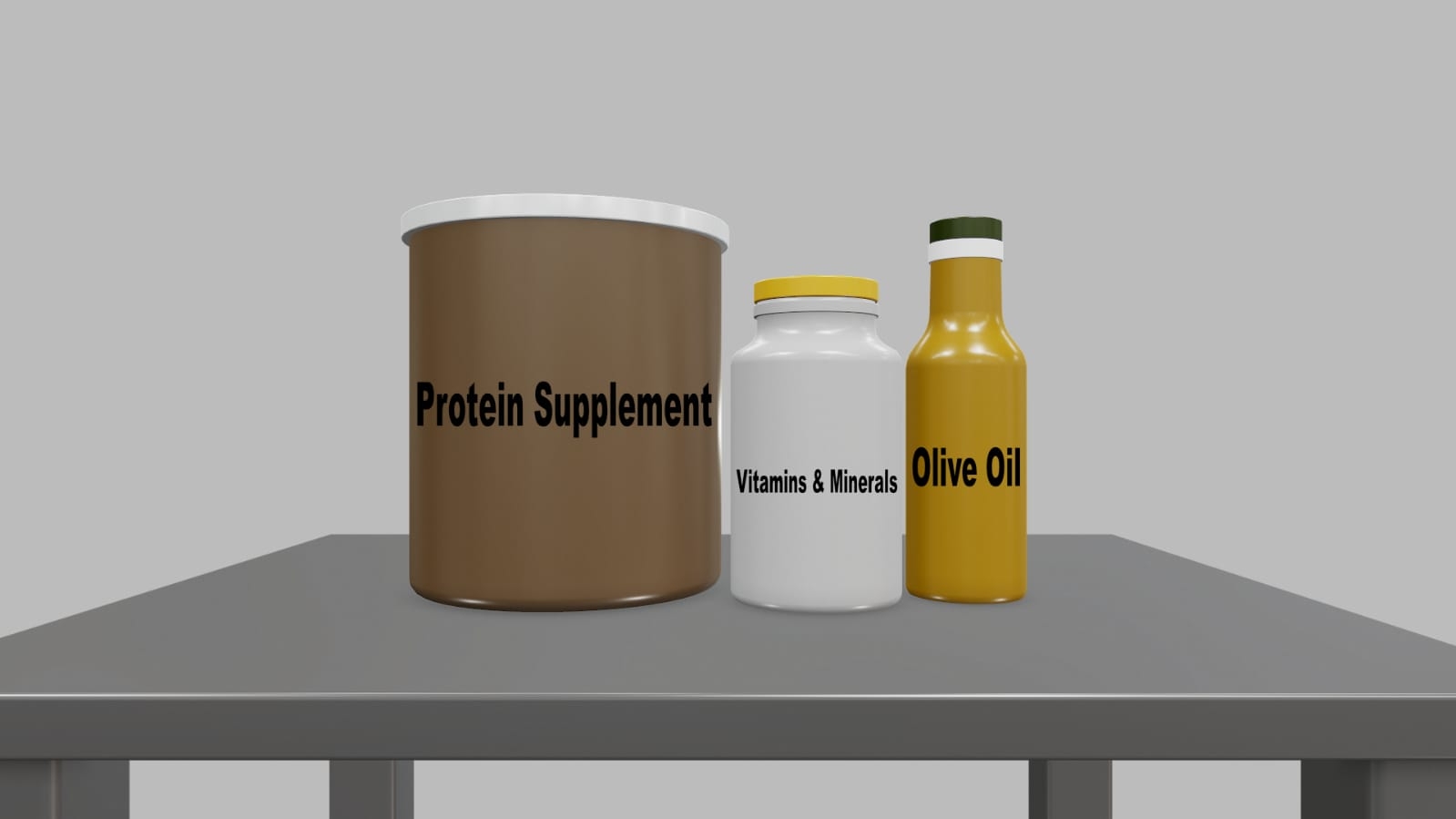Nutrition is the foundation of our health, happiness and long life. It’s a topic that transcends age and gender. Whether you’re an 18-year-old student striving for peak performance or a 75-year-old retired person looking to maintain vitality and wish to live a long life, understanding the importance of nutrition is important.
Macronutrients:
Micronutrients are those nutrients that the body needs in large quantities to perform various body functions properly. They are the foundational building blocks of our diet and include:
1.Carbohydrates:
Carbohydrates are the primary source to provide energy to the body. It is mainly found in two forms.
Simple Carbohydrates: Simple carbohydrates,are found in sugars, candy,honey,molasses,white rice,provide quick energy after consuming.
Complex carbohydrates: Complex carbohydrates,found in whole grains, legumes,fruits,sweet potatoes ,deliver sustained energy over time.
2.Proteins:
Are the body’s building blocks. Proteins are essential for muscle growth, tissue repair, and help in the production of enzymes and hormones. They are composed of amino acids, essential & nonessential acids, which act as the body’s construction workers, repairing and building tissues.
3.Fats:
Fats are an important source of energy in human diet. Fats are an important source of energy in human diet. After protein and carbohydrates, it is an important component which plays a major role in the form of macronutrient in the body. They provide long-lasting energy, support cell growth, help absorb fat-soluble vitamins like vitamin E,D,A & K. If there is sufficient fat in the meal, it helps in supplying fat-soluble vitamins to your body. Healthy fats, like those Found in sunflower,Olives,avocados and nuts, are essential for optimal function of the body.
Types Of Fats:
Saturated Fats: Normally saturated fats solidify at room temperature.
Source Of Saturated Fats: Derived from animal and plant sources . Examples-full fat milk,butter,cheese and other dairy products,red meat,poultary, and palm oil.
Unsaturated Fats: Normally unsaturated fats remain liquefied at room temperature.
Types Of Unsaturated fats:
Mono Unsaturated Fats: Monounsaturated fats generally remain liquefied at room temperature but may solidify when chilled. Vitamin E dissolves in this type of fats, which is essential for the body. This antioxidant reaches the body through diet.
Ploy Unsaturated Fats: Monounsaturated fats generally remain liquefied at room temperature but tend to solidify when chilled.
Source Of Unsaturated Fats: Olive oil,peanut oil,soyabeans oil,hemp seeds,avocados,chia seeds,pumpkin seeds,sunflower seeds and almonds.
Fats typically contains 9 calories per gram.

Macronutrients Role In Daily Diet:
The energy production:
The body breaks down carbohydrates and converts them into glucose, which provides instant energy to the body. Proteins and fats come into there specific roles, when the body needs sustained energy.
Muscle Building:
Proteins are the key component in muscle repair and growth. They help rebuild muscle tissues that break down during physical activity.
Hormone Regulation:
Fats play a important role in hormone production and and proper function in body. They ensure hormones are well-balanced and can carry out their various tasks. Consuming the right types of fats, and in the right amounts, reduces the risk of diseases related to aging.
Polyunsaturated oils are good for health, use them in the right quantity.
Micronutrients:
While macronutrients take center stage, micronutrients play a crucial but often overlooked role. Micronutrients are vitamins and minerals that the body needs in small quantities but are essential for various physiological processes.
Let’s explore some of the key micronutrients:
1. Vitamins:
Vitamins are organic compounds that are vital for overall health. They come in two categories: water-soluble (like vitamin C and the B vitamins) and fat-soluble (including vitamins A, D, E, and K). Each vitamin has a unique role, from boosting the immune system to supporting bone health.
2. Minerals:
Minerals are inorganic compounds that support various bodily functions. Calcium is crucial for strong bones, while iron helps transport oxygen in the blood. Other essential minerals include magnesium, potassium, and zinc.
The Combination of Macronutrients and Micronutrients:
Calcium and Vitamin D:
Calcium and Vitamin D, in combination can promote musculoskeletol bone health.vitamin D may helps promotes calcium absorption in the gut and regulate its level in blood.
Vitamin C and Iron:
The combination of Vitamin C and iron is also useful for the body. The combination of Vitamin C and Iron is also useful for the body. Iron transports oxygen in the body and helps in maintaining the immune system. Vitamin C helps in the absorption of non-heme iron (found in plant-based foods such as fruits and vegetables ) in the human gut, making it easier for the body to use this essential mineral.
Nutrition and Your Energy Levels:
One of the most noticeable effects of nutrition is its impact on human energy levels. Macronutrients and micronutrients are the key components in diet to maintain consistent energy throughout the day.
Here’s how it works:
Carbohydrates: These are the body’s preferred source of energy. Consuming complex carbohydrates, like whole grains and vegetables, provides steady energy.
Proteins:
Proteins help stabilize blood sugar levels, preventing energy crashes between meals.
Fats:
Healthy fats serve as a backup energy source when carbohydrates are scarce. They keep energy levels steady and provide a sense of satiety.
Vitamins and Minerals:
Micronutrients play a supporting role in energy production. For example, vitamin B,B2,B6,B5,B12 are involved in converting food into energy(metabolism), and iron is essential for oxygen transport throghout the body, which fuels cells.
The Role of Macronutrients and Micronutrients in Aging :
Nutrition plays a significant role in the aging process. As we grow older, our bodies undergo changes, and the right nutrients can help us age efficiently.
Here’s how macronutrients and micronutrients contribute:
Proteins: Adequate protein intake helps maintain muscle mass and strength, its crucial for mobility and independence in later years of age.
Fats: Healthy fats, particularly polyunsaturated fats, omega-3 fatty acids, support brain health and may reduce the risk of cognitive decline.
Vitamins and Minerals: Micronutrients like vitamins C and E, antioxidants like selenium and zinc, help control oxidative stress and inflammation associated with aging.
Dietary Supplements: They Are Bridging the Nutritional Gap
We get all our essential nutrients from a balanced diet. However, in reality, there are often gaps in our nutrition. Dietary supplements, like multivitamins and mineral supplements, can help fill these gaps.
Here’s where they can be beneficial:
Targeted Nutrition: Supplements can provide specific nutrients that may be lacking in your diet, such as vitamin D for bone health or omega-3 fatty acids for heart health.
Convenience: Supplements offer a convenient way to ensure you’re meeting your daily intake of nutritional requirement , especially if you have a busy lifestyle.
Health Conditions: Certain medical conditions or dietary restrictions may require supplementation to maintain optimal health.
The Emotional Connection to Nutrition:
Nutrition is a deeply emotional subject. The food we eat can evoke feelings of comfort, celebration, and even guilt. Understanding this emotional connection is essential for building a healthy relationship with food.
Mindful Eating: Paying attention to what and how we eat can foster a healthier relationship with food. It’s about savoring every bite and being present at mealtime.
Cultural Significance: Food is often deeply rooted in culture and tradition. Embracing these aspects can create a sense of connection and belonging.
Personalized Nutrition: Recognizing that each person’s nutritional needs are unique is a powerful step toward emotional well-being. It’s about nourishing your body and soul in a way that’s right for you.
The Road To Better Nutrition:
Achieving better nutrition isn’t about radical changes but rather making small, sustainable adjustments. Here are some practical steps:
Balanced Diet: Take a diet that contains variety of whole foods, including lean proteins, complex carbohydrates, and healthy fats.
Portion Control: Pay attention to portion sizes of meals to avoid overeating. Practice mindful eating to savour your food.





